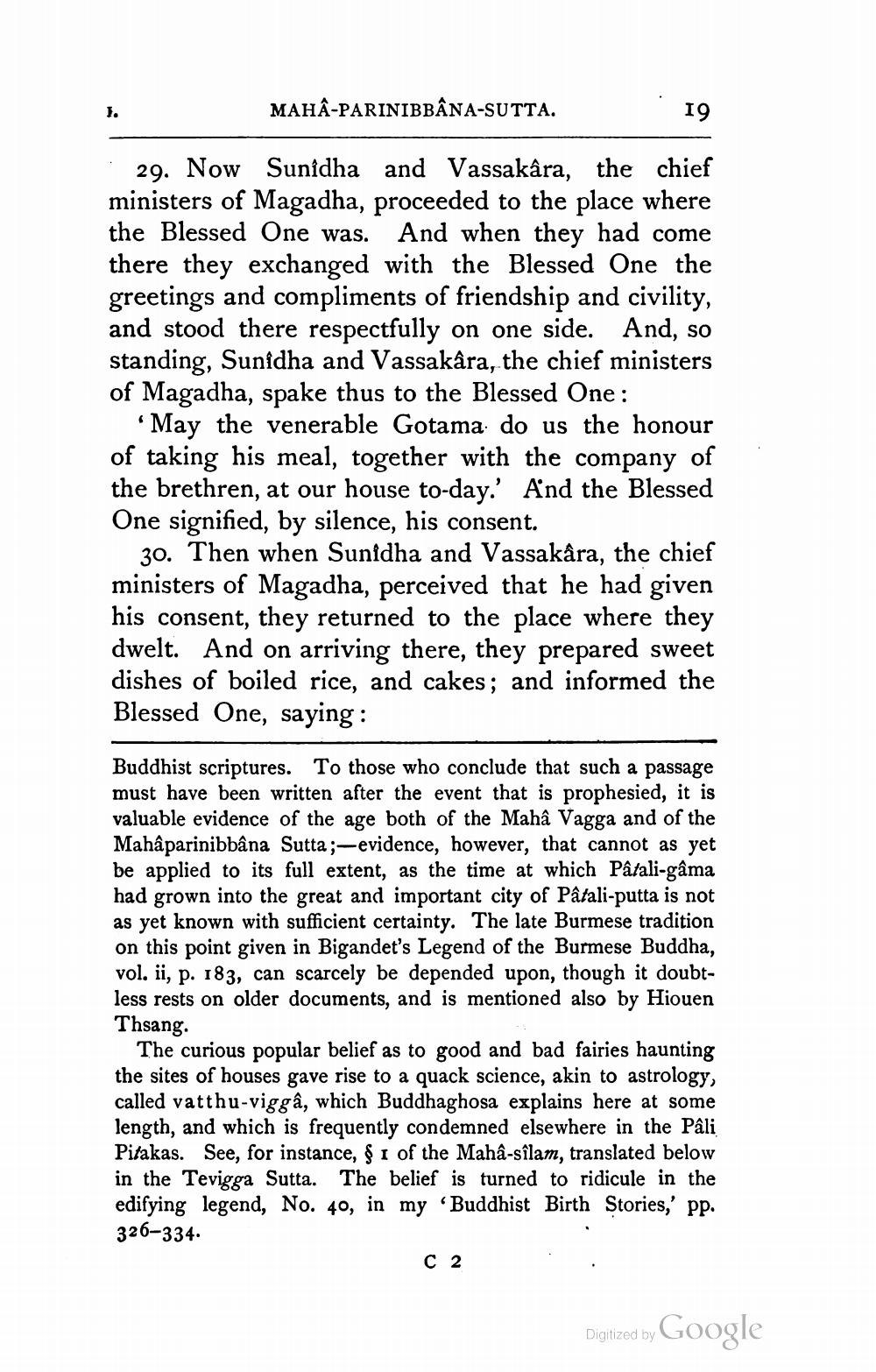________________
MAHA-PARINIBBANA-SUTTA.
29. Now Sunidha and Vassakâra, the chief ministers of Magadha, proceeded to the place where the Blessed One was. And when they had come there they exchanged with the Blessed One the greetings and compliments of friendship and civility, and stood there respectfully on one side. And, so standing, Sunidha and Vassakâra, the chief ministers of Magadha, spake thus to the Blessed One:
'May the venerable Gotama do us the honour of taking his meal, together with the company of the brethren, at our house to-day.' And the Blessed One signified, by silence, his consent.
30. Then when Sunidha and Vassakâra, the chief ministers of Magadha, perceived that he had given his consent, they returned to the place where they dwelt. And on arriving there, they prepared sweet dishes of boiled rice, and cakes; and informed the Blessed One, saying:
1.
19
Buddhist scriptures. To those who conclude that such a passage must have been written after the event that is prophesied, it is valuable evidence of the age both of the Mahâ Vagga and of the Mahâparinibbâna Sutta;-evidence, however, that cannot as yet be applied to its full extent, as the time at which Pâtali-gâma had grown into the great and important city of Pâtali-putta is not as yet known with sufficient certainty. The late Burmese tradition on this point given in Bigandet's Legend of the Burmese Buddha, vol. ii, p. 183, can scarcely be depended upon, though it doubtless rests on older documents, and is mentioned also by Hiouen Thsang.
The curious popular belief as to good and bad fairies haunting the sites of houses gave rise to a quack science, akin to astrology, called vatthu-viggâ, which Buddhaghosa explains here at some length, and which is frequently condemned elsewhere in the Pâli Pitakas. See, for instance, § 1 of the Mahâ-sîlam, translated below in the Tevigga Sutta. The belief is turned to ridicule in the edifying legend, No. 40, in my 'Buddhist Birth Stories,' pp. 326-334.
C 2
Digitized by Google




